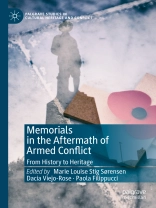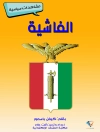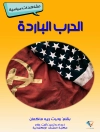Through case studies from Europe and Russia, this volume analyses memorials as a means for the present to make claims on the past in the aftermath of armed conflict. The central contention is that memorials are not backward-looking, inert reminders of past events, but instead active triggers of personal and shared emotion, that are inescapably political, bound up with how societies reconstruct their present and future as they negotiate their way out of (and sometimes back into) conflict. A central aim of the book is to highlight and illustrate the cultural and ethical complexity of memorials, as focal points for a tension between the notion of memory as truth, and the practice of memory as negotiable. By adopting a relatively bounded temporal and spatial scope, the volume seeks to move beyond the established focus on national traditions, to reveal cultural commonalities and shared influences in the memorial forms and practices of individual regions and of particular conflicts.
Inhaltsverzeichnis
1. Introduction. Memorials and memorialisation – history, forms and affects; Marie Louise Stig Sørensen and Dacia Viejo Rose.- 2. Commemorations of the Madrid train bombings of 11 March 2004: Grassroots Memorials, Official Memorials and Conflictive Performances; Cristina Sánchez-Carretero and Gérôme Truc.- 3. Myths of Salvation and Struggle: Contesting a Secular Pilgrimage in Cyprus; Rebecca Bryant and Mete Hatay.- 4. Heritagization of the Gulag: A Case Study from the Solovetsky Islands; Margaret Comer.- 5. Srebrenica Memorial Centre and Commemorative Practices; Dzenan Sahovic.- 6. Conflicted memorials and the need to look forward. The interplay between remembering and forgetting in Mostar and on the Kosovo Field; Gustav Wollentz.- 7. The Dudik Memorial Complex: Commemoration and Changing Regimes in the Contested City of Vukovar; Britt Baillie.- 8. From’memorial combine’ to a ‘place of learning’. The Heide¬friedhof cemetery in Dresden as an arena for competing cultures of memory; Matthias Neutzner.- 9. The Isted Lion – from memorial of war to monument of friendship; Inge Adriansen.
Über den Autor
Marie Louise Stig Sørensen is Professor of European Prehistory and Heritage Studies at the University of Cambridge, UK and Professor of Bronze Age studies at Leiden University, The Netherlands.
Dacia Viejo-Rose is Lecturer in Heritage and the Politics of the Past at the University of Cambridge, UK.
Paola Filippucci is Lecturer in Social Anthropology at the University of Cambridge, UK.












